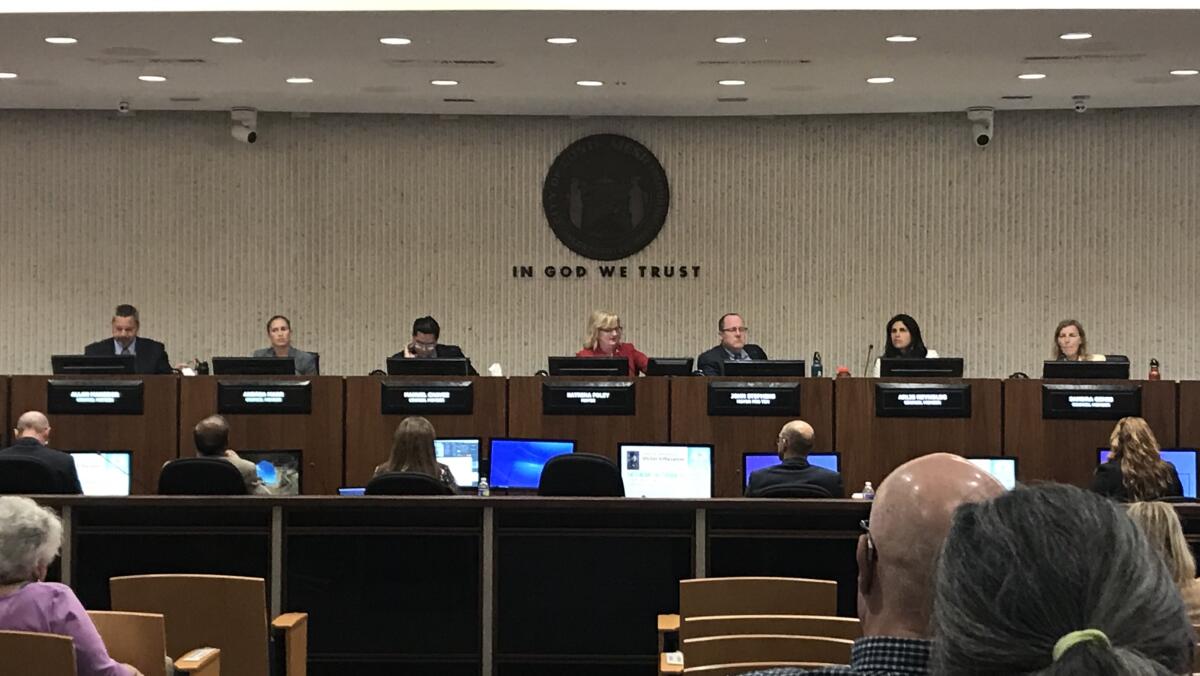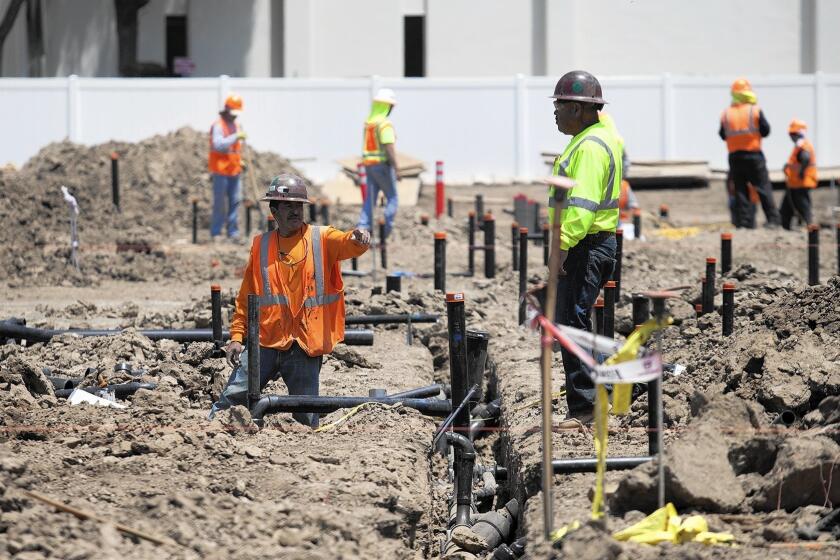Costa Mesa council opposes housing assessment that says the city needs 11,734 new units

- Share via
The Costa Mesa City Council adopted a resolution Thursday night opposing the methods the Southern California Assn. of Governments used to determine that the city needs 11,734 new housing units.
The 6-1 decision, with Councilman Manuel Chavez dissenting, also forwards recommendations to the state Housing and Community Development Department, which is reviewing SCAG’s procedures.
For the record:
9:15 a.m. Jan. 11, 2020This article originally stated that Councilman Manuel Chavez said he didn’t support the resolution because he believes the council “should rush to the challenge” of providing more housing. He actually said the council “should rise up to that challenge.”
The department plans to issue a decision Monday, according to spokeswoman Alicia Murillo.
In response to California’s housing crisis, the state determined that the SCAG region — Orange, Los Angeles, Riverside, San Bernardino, Imperial and Ventura counties — needs to develop 1.34 million new homes by 2029.
SCAG, which is tasked with determining cities’ share of that target, initially indicated in August that Costa Mesa would need to set aside enough land for 4,309 homes.
In November, though, SCAG reshuffled its allocations — increasing Costa Mesa’s share by 7,425. SCAG’s new methodology was part of a push for more housing in coastal communities like Laguna Beach, which also opposes the assessment.
State law requires counties and cities to identify sites and zones where they can meet their allocations, but it does not force the construction of planned housing.
After SCAG reshuffled the allocations in a dramatic adjustment Nov. 7, Newport’s share climbed about 75% over minimums announced in October. Costa Mesa’s share more than doubled. Fountain Valley’s more than tripled. Same in Huntington Beach.
Chavez said he didn’t support the resolution because he believes the council “should rise up to that challenge” of providing more housing. He noted that Costa Mesa has a growing demographic of young professionals and said housing gives them important peace of mind.
“Costa Mesa understands the state is facing a housing shortfall,” city spokesman Tony Dodero said in a statement Friday. “We support increased housing, including affordable housing, but we should not be asked to take on a disproportionate share of the allocation.”
SCAG said in a statement Wednesday in response to Laguna Beach’s opposition that “we have been working on this for a long time, almost two years. At the end of the day, we want ... to address the housing crisis. As a six-county region with such diverse members, we have a very fine needle to thread.”
Most Costa Mesa council members said they are pro-housing but do not agree with the latest assessment methods or the possible penalties for not meeting the city’s goal.
Barry Curtis, Costa Mesa’s economic and development services director, said penalties could include limitations in state funding. But, he added, “I don’t believe the state is mandated to penalize.”
During public comment, city Planning Commissioner Marc Perkins objected to some language in the council resolution that he felt was inaccurate.
He said the phrase “methodology fails completely” was incorrect because SCAG’s method is entirely “formulaic in nature” and “seems to be applied equitably across all regions SCAG is covering.”
Dodero disagreed in his statement.
“The rationale for the tripling of our allocation is unclear,” he said.
Regarding a part of the resolution that states “achievement of this target is untenable for a built-out suburban community such as Costa Mesa,” Perkins said that, while the council may not want to seek a plan for 11,734 additional housing units, Costa Mesa is capable of doing so with mixed-used housing and accessory dwelling units.
Council members ultimately tweaked some of the resolution’s language, as they said they wanted its tone to be positive.
At the suggestion of member Sandy Genis, the council also added language stipulating that “the city of Costa Mesa is willing to do its fair share toward meeting regional housing needs and supports other cities doing the same.”
It urged the state to support the original allocation methodology that set the city’s target at 4,309 housing units.
All the latest on Orange County from Orange County.
Get our free TimesOC newsletter.
You may occasionally receive promotional content from the Daily Pilot.





